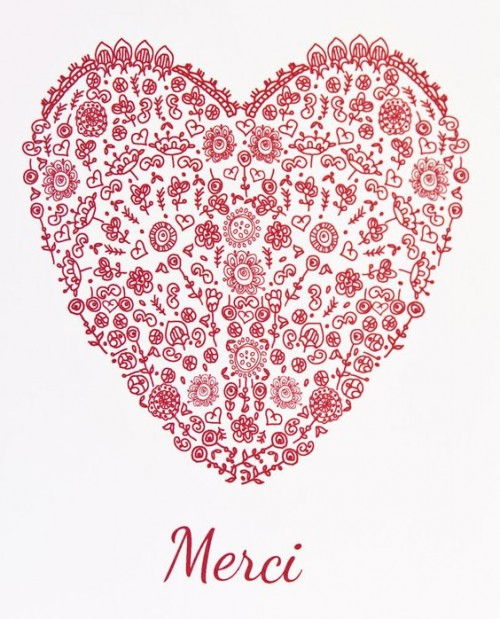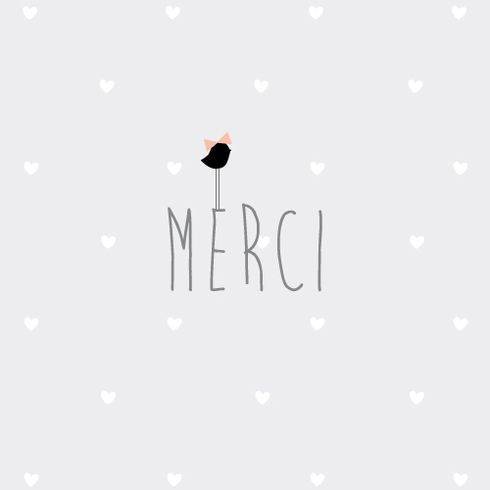How to Say Thank You in French
How to Say Thank You in French
If you are about to visit France, or some other French speaking part of the world, the last thing you want to do is come across as rude. Learning to say thank you is therefore important. Besides, if you’ve ever been to France you know that even if you only know a couple of phrases in French, the French will be so much more accommodating towards you than if you don’t. Whoever makes an effort to speak French will be much more warmly welcomed than someone who does not. So even if you feel stupid as you struggle with a new language, put your worries aside and contemplate that the French will actually find your efforts heartwarming.

Merci
“Thanks,” or “thank you,” translates to a simple “merci.” If someone has thanked you and you want to thank them too, you can reply “merci à vous.”
If you want to thank a person whose name you don’t know, you usually say “merci monsieur” (thank you mister), “merci madame” (thank you madame), or “merci mademoiselle” (thank you miss). Adding the mister/madame/miss makes it more polite.
If you know someone’s name, you just add that after the merci. For example you say “merci Marie.”
Addressing Several People at the Same Time
If you want to thank two people at the same time, you can add a simple “et” which means “and,” such as “merci monsieur et merci madame.” When thanking two people you can also say “merci à vous deux.”
If you want to say “thank you all” you say “merci à vous tous.”
Thank You Very Much
If you want to emphasis the thank you, you can add a “beaucoup” to the sentence, meaning very, or very much. In other words, you say “merci beaucoup” or “merci beaucoup madame/monsieur/mademoiselle.”
You can also use “bien” instead of “beaucoup.” “Bien” directly translates to “good,” or “well,” but can be used as a substitute of “beaucoup” when thanking someone, simply saying “merci bien.”
A Big Thank You
“A big thank you to you,” translates to “un grand merci à vous.”
Thanking Someone a Thousand Times
The French don’t say “thanks a million” they say “thanks a thousand,” or, well, if you translate it directly they actually say “(a) thousand times thank you.” In French that reads “mille fois merci.”
I Thank You
If you’d prefer to say “I thank you,” then you say “je te remerci” – the direct translation being “I you thank.” If you are talking to someone you don’t know, the “te” would be exchanged for “vous.” So you’d say “je vous remerci.”
Here you can add the name, or the title in the end as well, saying “je te remerci John.”
Telling Someone It Is Very Kind of Them
If you want to tell someone it is very kind of them to do something, then you’d say “c’est vraiment gentil de ta part.” If you want to use a past tense, that’s to say telling someone it was very kind of them, then you’d say “c’étais vraiment gentil de ta part.”
Thanking Someone from Your Heart and Soul
If you wish to thank someone from your heart and soul then you say “merci à vous, du plus profond de mon cœur et de mon âme.”
Formally Thanking Someone in a Letter
To formally thank someone in a letter you’d write “je vous adresse mes plus vifs remerciements,” meaning “I send you my most sincere thanks.” Of course, if you want something more informal, you can just use the same phrases you would when speaking!

If Someone Thanks You
If someone thanks you and you want to respond that it was nothing you say “de rien” or “il’n’y a pas de quoi.“
If you want to say they’re welcome, you say “je vous en prie” or “je t’en prie,” the former being the more formal version and the latter when addressed to someone you know.
If you want to say that it was a pleasure, you say “tout le plaisir était pour moi,” which directly translates to “all the pleasure was for me.”
Lastly, if you want to say you were happy to do it, you say “j’étais heureux de le faire.” In other words, you couldn’t use this if someone thanks you for something they bought in your shop, as it wasn’t something you did per se.